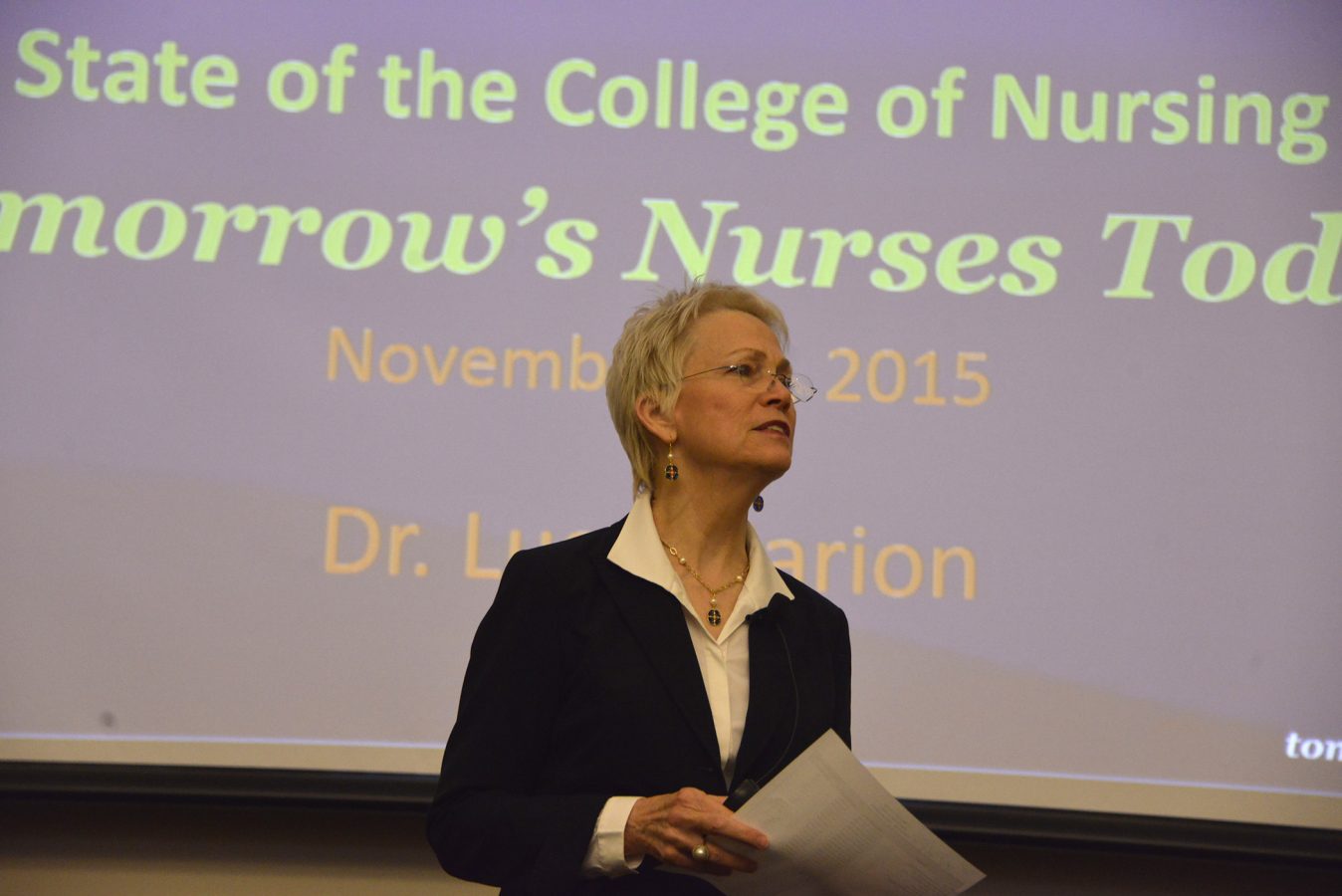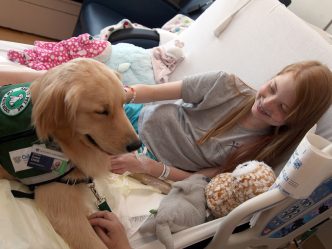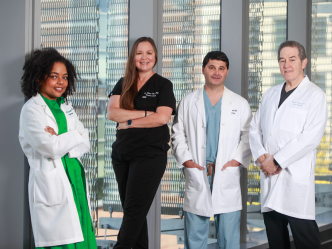“Tomorrow’s nurses … today” is the long-standing mantra of the College of Nursing at Georgia Regents University and was the theme of the 2015 State of the College Address delivered by Dean Lucy Marion on Friday.
“This statement so eloquently speaks to who we are — it was true when I arrived here some 11 years ago and still rings true today,” Marion stated in her opening comments.
Same foundation … new generation, we expect and embrace the change — was a key theme of her address.
Marion mapped out the college’s trajectory for growth over the next three years, to include adding programs, establishing a new entrepreneurial branch and building research and scholarship among faculty and students.
This fall, the college is experiencing the largest enrollment in its 72-year history and is expanding services to accommodate this growth.
“We are right-sizing our operations as we continue to innovate,” Marion stated. “Striving to keep up with the demand and being careful to make the best use of resources along the way.”
This year, the college celebrates three key anniversaries —10th year of the Clinical Nurse Leader Program, 20th year of the Nursing Anesthesia Program and 30th year of the PhD in Nursing Program. “10-20-30 — simply incredible,” she said. “And we are not slowing down!”
By 2018, the college will add new degree tracks to the Doctor of Nursing Practice, Doctor of Philosophy in Nursing, and MSN-Clinical Nurse Leader programs. The Psych-Mental Health Post-Master’s Certificate and the Nursing Anesthesia Program also will transition to the DNP.
“Our faculty and staff are working hard to be responsive and to prepare our future nurses with the highest level of instruction and advanced skills required in our ‘high tech-high touch’ profession,” she said. She pointed out cultural competency as a key component of this work, ensuring that students are prepared to care for patients from “all walks of life.”
Marion went on to highlight growth in scholarship giving and the array of partnerships through which the college serves communities surrounding their campuses in Augusta and Athens and in underserved areas around the world.
“Our faculty and students are highly engaged, and I am especially proud of the service we provide to vulnerable populations,” she said. “We take great joy in what we do.”
The next step is to translate these activities into replicable models that can be used elsewhere. Research components are being built into established programs like the Healthy Grandparents Program, and new areas of discovery such as epigenetics and cancer interventions are being added to the college’s research portfolio.
“Much of this work will be led by Dr. Pamela Shiao, our new associate dean for research,” she said. “She joined us in September and already is creating the types of alliances that will move this area to the next level.”
The next year will bring a renewed focus on sustaining the college’s reputation as a leader in nursing education.
“As I have done many times before, I will stand up in every meeting and proudly proclaim that we are a great College of Nursing, we are the USG flagship,” Marion stated in her closing. “We have a great foundation from our legacy institutions to build an even greater future for the College of Nursing.”
 Augusta University
Augusta University




